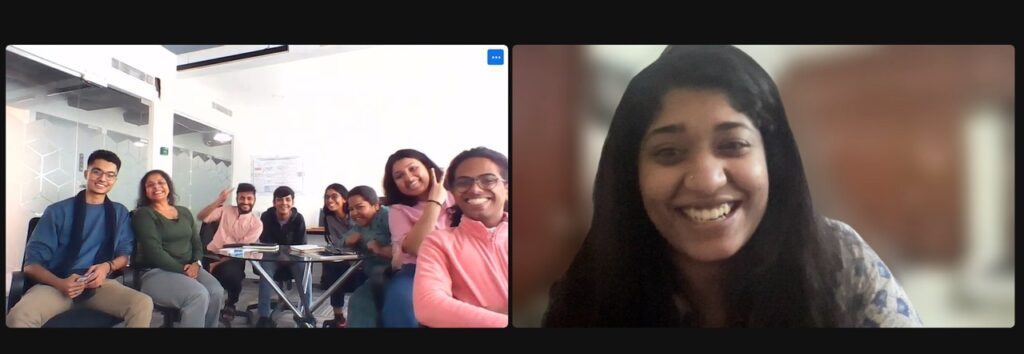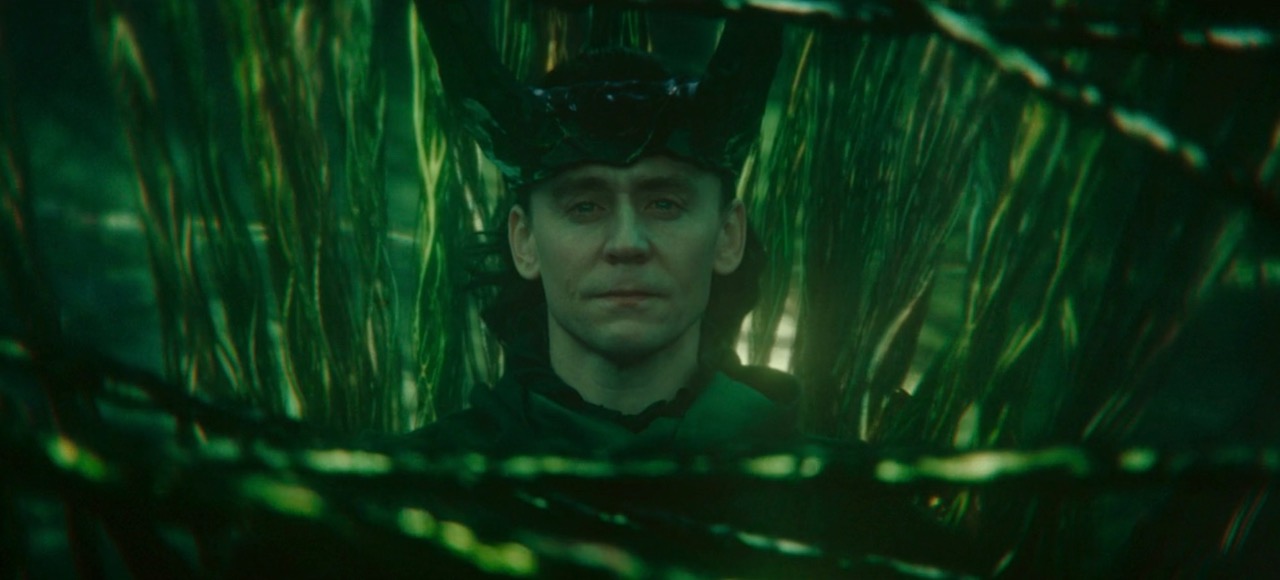By Deedee
“It’s not about where, when, or why. It’s about who.” says Loki in an aha moment as he realises how to control his time slipping.
For folks not entrenched in the Marvel Cinematic Universe – Loki (an MCU character vaguely based on the Norse god) is stuck in a realm outside time where he has to save the entire multiverse (all existence across all universes) from collapsing on itself.
He is endowed with an incredibly painful predicament of slipping in and out of time uncontrollably. He now needs to learn to control time slipping (ie. become a time traveller), and then find a way to stop the obliteration at the end of time. While he can take the help of literally every person at any point in time across all universes – he is the only person who can save the multiverse.
Now, what does that have to do with Dialogue and my first month at Kshetra?
In my first month at Kshetra, the most meaningful learning for me is that the Dialogic Method has reinforced my deeply held belief that getting voices of people across the board and facilitating collaborative problem solving is indeed possible. In fact, it is likely the only way to create long-term sustainable solutions.
Research can help identify some of the ‘whats’ and ‘whys’ of a problem, but without a clear understanding and equal engagement of the ‘whos’ – we probably only have a partial view of the problem at hand.
The act of identifying and engaging with stakeholders across the value chain of a system is overwhelmingly powerful. I saw this firsthand during our convening event with a partner organisation who were interested in transforming the criminal justice system in India.
While their approach is primarily through research and data on issues within the criminal justice system – the Kshetra team nudged them to think about stakeholder mapping with an attitude of abundance. Regardless of whether we can get them in the room, ask yourself – Who all are the categories of stakeholders who need to be involved in this conversation in order for us to get a comprehensive understanding of the larger system and its functioning?
Would that list only include judges and lawyers? Would it not include victims, perpetrators, and their families? What about legal aid providers and mental health practitioners? Police training academies? Legislators and law enforcement officers? Media and business owners? Dalits, Tribals, and migrants who face the brunt end of the system? The final shortlist had over 25 categories and multiple sub-categories of stakeholders.
During the convening event, when the Kshetra team created a space for top think tanks and former prison inmates to sit at the table as equal participants, the conversation made a big difference in everyone’s perspectives on the larger system and solutions emerging thereof. From bail to prison overcrowding – there was dissonance and congruence at multiple levels. Every person in the room could feel the power of having diverse voices being heard – me included.
A personal example would be Overcriminalization – while most people in the room agreed that we have far too many criminal laws, I disagreed. As a Transgender person who works closely with the Trans and Queer community in India, I see barely any legal protections for my community. Atrocities against Trans people are rarely reported, even if reported there is no FIR filed. In the 4 years since the Transgender Persons (Protection of Rights) Act 2019, there has not been one single conviction despite 10-15 murders/abetment of suicide cases happening every month across states.
Another example was when non-profits working with prison inmates raised the demand for reducing overcrowding of prisons. In any conversation on criminal justice reform, prison overcrowding is among the top cited issues that everyone agrees on. However, the researchers in the room brought statistics to show that the issue is not overcrowding across the board, but in certain prisons – while others are either at capacity or empty at points. Everyone found that very insightful and it made them reflect on one of their core assumptions about the larger system.
The moment these diverging perspectives were brought to the group, everyone took a step back to reassess their position and understand that maybe they don’t have all the ‘whats’ and ‘whys’ of criminal justice reform nailed down. Everyone felt they learnt something new that challenges their way of thinking and working with the system.
Again, having diverse voices and lived experiences in the room, and creating a dialogic space for them to engage as equal participants makes all the difference!
My First Month at Kshetra
That brings me back to my learning during my first month at Kshetra. In Loki Season 2, the God of Mischief learns that the way to control his time slipping is not by focusing on which point in time and space he wants to go to, or why he wants to go there, but by focusing on who he wants to meet –“It’s about Who?”
While identifying ‘Who’ helped this fictional god navigate his way through time and save all living beings across all universes, the same act is critical to building solutions, in the real world, that work for everyone.
Lastly, I am deeply grateful to the team and the work we do at Kshetra. Hopeful to see how Dialogue, done right, helps changemakers across sectors supercharge their efforts to create systemic change.


